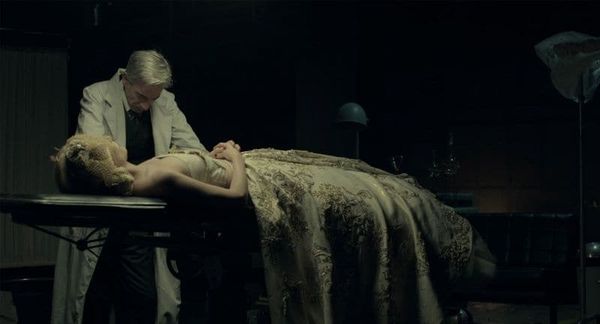Eye For Film >> Movies >> Eva Doesn't Sleep (2015) Film Review
Eva Doesn't Sleep
Reviewed by: Amber Wilkinson

The legacy of Eva Peron is examined from an unusual perspective in Pablo Agüero's film, which mixes archive footage and fiction to consider what happened to the First Lady of Argentian's body after her death in 1952. It seems incredible, if not downright unsettling, to think that it could take an embalmer two years to make her look 'perfect' and even more astounding that, after her body was seized in 1955, it disappeared for almost 20 years before being recovered. It is this sense of creepy nerviness associated with the totemic passage of her body - disturbingly sexualised beyond the grave - that is Agüero's high point in a film which, for all its atmosphere, remains frustratingly lacking in narrative detail.
The problems run deeper, as while the documentary footage of Peron in front of the crowds shows the huge impact she had, the politics are presented in a frustratingly murky way, likely to leave non-Argentine audiences who don't bring previous knowledge of the machinations of the era scratching their heads.

The main window into her divisiveness comes through the juxtaposition of adoring crowds in actual footage with an opening voice-over from Admiral Emilio Massera (Gael García Bernal) - part of the military junta who stage the 1976 coup - who outlines his hatred for "that bitch" and her "whores" (namely the women whose rights she championed) but other references to the politics and the Peronistas who feature in the film's final segment are under-explained.
The director, perhaps too accustomed to the more limited budget of his early films 77 Doronship and Salamander, imagines the story of Peron's corpse as a series of vignettes, which gives the film a feeling of a unsatisfactorily adapted stage play. Each scripted scene plays out in the confines of a single room - the morgue, a transporter lorry, a rebel hideout - which leaves them feeling flat and isolated. It's a pity because the first scene, a striking shot of the hearse carrying Peron's body as it moves through the pouring rain, and another later, depicting a man carrying her body down to a lake still as glass show Agüero has an eye for the bigger picture.
The inclusion of French star Denis Lavant as one of the soldiers tasked with transporting her body, is also likely to jar with local audiences, because fine actor though he is, his accent still seems out of step with those around him. Despite its fascinating subject matter and occasional striking images - early scenes in the morgue are particularly creepy - Agüero struggles to fully explore either the drama or the human impact of Peron, settling instead for an experimental halfway house.
Reviewed on: 07 Oct 2015














